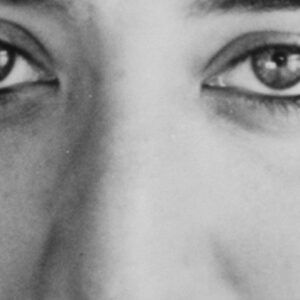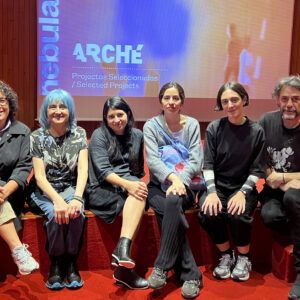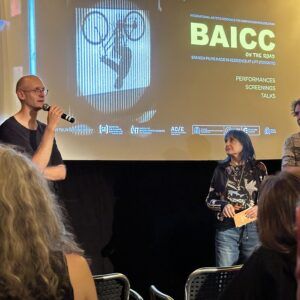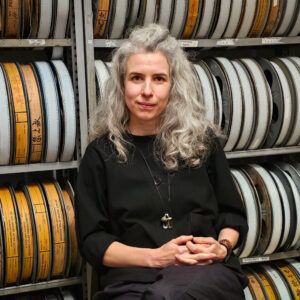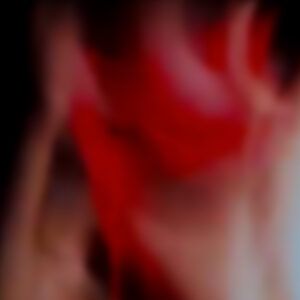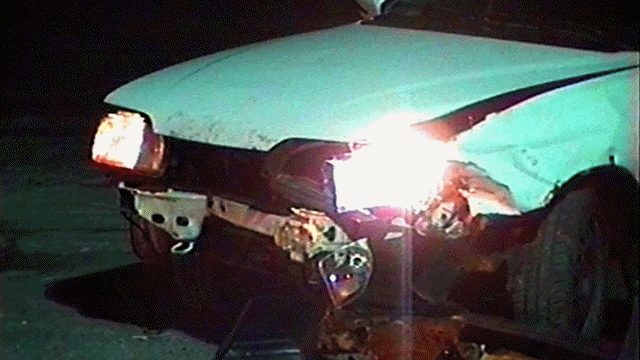
- This year, the festival will take us on a trip across their filmography through a twofold program that includes an online special and an on-site session at the theatre, conducted by producer Beli Martínez. To close the program, the duo will offer a live performance in the city of A Coruña.
- The contemporary Galician filmmaking scene will also be present in the festival: the section Sinais en curto will feature works by Alberto Gracia, Sol Mussa, Xacio Baño, Marta Valverde, and Eloy Domínguez Serén.
Since the very foundation of the festival, (S8) Mostra Internacional de Cinema Periférico da Coruña has committed to encouraging and disseminating the works by Galician creators, and 2021’s dual edition, which will take place between May 28 and June 6, won’t be different. Thanks to its twofold format, (S8) will offer a range of online on-site activities intended to boost the visibility and internationalization of Galician creations.

In this 12th edition, (S8)’s section Sinais is devoted to getting to know a creative duo whose work definitely matches the spirit of the festival: Galician filmmaker Helena Girón and Samuel Delgado, a creator from the Canary Islands, who have joined forces to explore materials and ideas in films that bring to the front an underground thread of subversion that underpins every period in history. In their films, the study of myths and the occult –with an emphasis on the political implications that underlie them– are interwoven with a reinterpretation of history. This year, (S8)’s online program brings to the audience an in-depth interview with the authors that will be complemented with the exhibition of their films Sin Dios ni Santa María, Montañas ardientes que vomitan fuego, and Plus Ultra.
Both filmmakers will visit A Coruña during the festival to deliver a live performance and attend the screening of their films for the subsequent Q&A session with the audience, which will be conducted by the producer of their latest pieces Beli Martínez. On this occasion, Girón and Delgado will share the first images of their much awaited first feature film Eles transportan a morte.
Sinais en Curto: Alberto Gracia, Sol Mussa, Xacio Baño, Marta Valverde and Eloy Domínguez Serén
For yet another year, (S8)’s section Sinais en curto offers a compilation of innovative Galician creations made within the last year. The films that will be featured this year (signed by local creators Alberto Gracia, Sol Mussa, Xacio Baño, Marta Valverde, and Eloy Domínguez Serén) explore the contrasts between indoor/inner and outdoor spaces, between collective experiences and isolation. The usual on-site screening will be complemented by a series of special online programs with solo episodes dedicated to each featured Galician author. These programs, designed to make you discover in detail both the artists’ work and the creative impulses behind it, will include an extra selection of films by the guest authors.
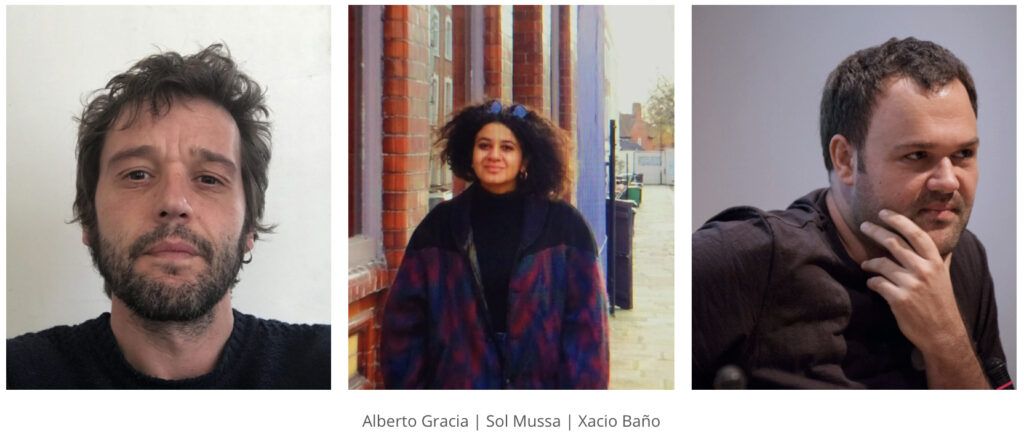
Alberto Gracia. Inspired by some sort of postmodern bewilderment, Alberto Gracia has put together a filmography that could be described as a hallucinating amalgam made of the waste products and residues of a society saturated with images. His works are pervaded with a feeling of restlessness, a peculiar sense of humor, and an unredeemed radicality, from The Fifth Gospel of Kaspar Hauser and La Estrella errante to the recent piece that will be premiered during the festival, Tengan cuidado ahí fuera.
Sol Mussa’s work seems to resist all labels: a creator with a background in Fine Art, she specialized in painting. Later in her career, she started exploring filmmaking as another medium for channeling her creativity. Her audiovisual works are a hybrid of her visual explorations and an ethnographic vocation that Mussa expresses in the first person, approaching topics like migrations and job insecurity. In this 12th edition of (S8), viewers will be invited to delve into the processes behind her work and will have the opportunity to discover Mussa’s pieces Stockroom and Ratatouille.
Xacio Baño sees cinema as a tractable material with unlimited potential. Since the beginning of his filmmaking career, he has moved freely among fiction, non-fiction, and experimental procedures. Using memory as his prime material, Baño approaches this subject in many ways, exploring both family memories and collective memories. This year, (S8) brings to the audience his pieces Ser e voltar –a portrait of the author’s grandparents that turns, midway, into a bright fiction– and Augas abisais, a film in which an account by Baño’s grandmother opens the door to an associative, unconventional exploration of historical memory.
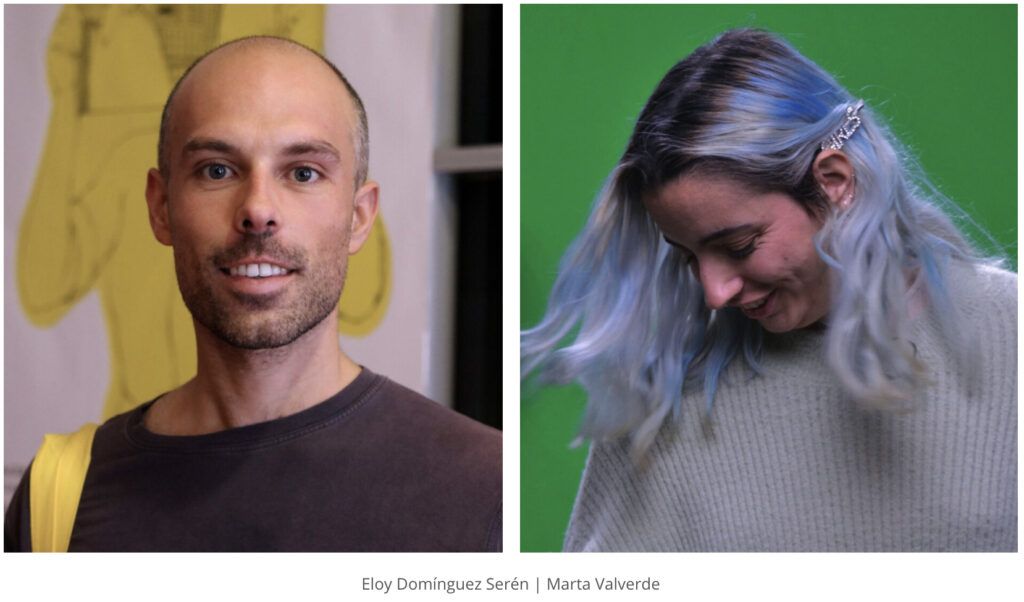
Marta Valverde. The ability to flow freely among different disciplines defines Marta Valverde’s work. Her artistic production includes one-format pieces (Blanco y fucsia and El tiempo suspendido), but also pieces involving multiple screens, live cinema, photography, installations, and visual productions for theatre and stage performances. As she herself states, her interests range from intimacy to memory and autobiographical explorations –all of these are present in her films, which usually expand beyond the screen, as is the case with Blanco y fucsia.
Eloy Domínguez Serén. Experience seems to be the main drive behind Eloy Domínguez Serén’s films: his entire filmography is pervaded with the curious gaze that encourages him to become involved with the places he inhabits, be it Sweden, Galicia, or the Sahara. This year, (S8) will be presenting two pieces with proposals that go beyond the real in many ways: Rust, a subtle fiction inspired by an apocalyptical location in Sweden, and Os corpos, which explores a state of trance catalyzed by the Galician entroido, a feverish and delirious local pagan tradition.

